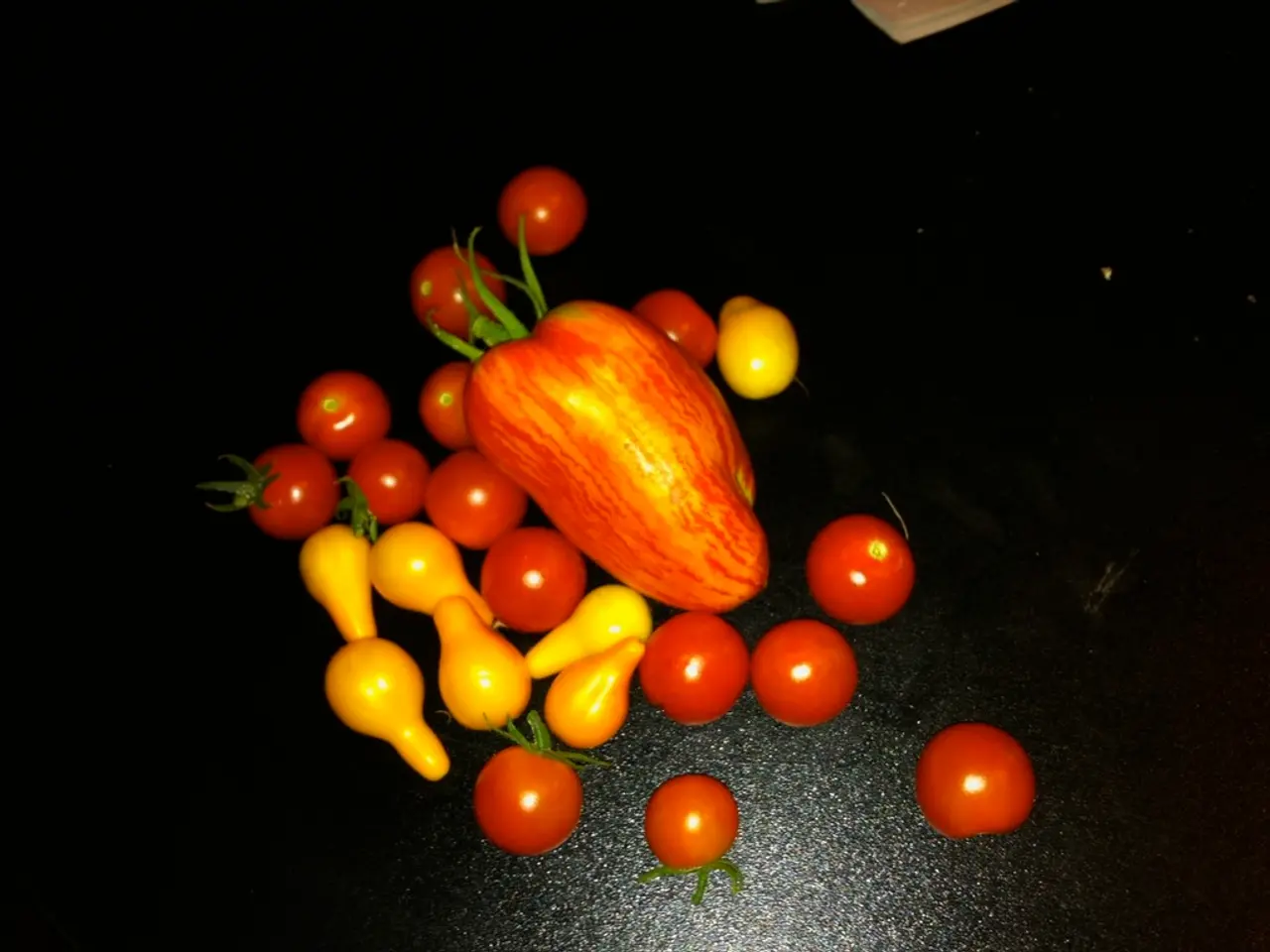Questions Arise about the Potential Role of Fruits in Cancer Therapy
When undergoing cancer treatment, maintaining a balanced diet can play a crucial role in managing side effects and supporting overall health. Antioxidant-rich foods, including fruits, may be particularly beneficial alongside conventional treatments. Here are some fruits that are high in essential nutrients, vitamins, minerals, and fiber to help manage side effects and support the body during chemotherapy and radiation therapy.
High Nutrient Fruits
Mangoes
Rich in vitamins A, C, B6, E, and K, as well as high in potassium and fiber, mangoes are a nutritious choice. They also contain powerful antioxidants like mangiferin, which may protect against chronic diseases.
Dragon Fruit
This vibrant fruit is rich in vitamins C and E, fiber, and minerals like magnesium and iron. Dragon fruit contains carotenoids such as lycopene and beta-carotene, offering antioxidant benefits.
Avocado (technically a fruit)
High in healthy fats, potassium, fiber, and vitamins B6, E, and K, avocados are a great addition to any diet. They include carotenoids like lutein and zeaxanthin that support eye health.
Blackberries
Abundant in dietary fiber, vitamins C and K, and minerals like manganese, blackberries are a nutritious choice. They are rich in antioxidants such as anthocyanins, which may help protect against cardiovascular disease and certain cancers.
Berries (Blueberries, Raspberries, Strawberries)
High in antioxidants, vitamins, and minerals, these berries may help reduce inflammation and inhibit cancer cell growth.
Additional Considerations
Citrus Fruits
Rich in vitamin C, which supports immune function and can help reduce inflammation, citrus fruits are a good option.
Pomegranates
Known for their antioxidant properties and potential anti-cancer benefits, although specific research on treatment side effects is mixed.
Bananas
Low-acid and easy on the stomach, bananas may be a more suitable choice for people with chemotherapy-related nausea. They are also rich in potassium and magnesium, making them helpful for replacing the electrolytes the body loses from vomiting.
Strawberries
One cup of whole strawberries contains 3 grams of fiber, making them a good source of fiber, especially for managing chemotherapy-related constipation.
Remember, it is essential to report any side effects of treatment to a doctor, as diet and lifestyle changes are not a replacement for doctor-prescribed therapies. Consuming more fruits high in certain antioxidants, vitamins, and fiber can help the body stay healthy and fight infection, and may be easy on the stomach during episodes of nausea. However, raw fruit can carry harmful bacteria, so it is important to take steps to avoid a food-borne illness when consuming raw fruits. Inspect fruit for mold or rot, wash it thoroughly, and cut it on a clean cutting board to avoid cross-contamination with other foods.
Doctors can provide additional nutrition advice for people with cancer, and it is always best to consult with a healthcare provider or nutritionist for personalized dietary advice. Research suggests that people with nutritious diets have a lower risk of cancer death than those with less nutritious diets. Consuming more fruits high in certain antioxidants, such as vitamin C, α-carotene, β-carotene, and lutein, is associated with higher cancer survival rates.
For example, a medium avocado contains about 1.85 micrograms of biotin, a vitamin helpful for hair growth, which may be beneficial for hair regrowth after chemotherapy. Vitamin C helps the body absorb iron, which can be helpful for people who experience anemia as a side effect of cancer treatment.
In conclusion, incorporating these high-nutrient fruits into a diet can provide essential nutrients and support overall health during cancer treatment. Always consult with a healthcare provider or nutritionist for personalized dietary advice.
- Mangoes, rich in various vitamins and high in fiber, may protect against chronic diseases due to their powerful antioxidants.
- Dragon fruit, being rich in vitamins C and E, fiber, and minerals like magnesium and iron, offers antioxidant benefits.
- Avocados, high in healthy fats, potassium, fiber, and vitamins, support eye health and overall health.
- Blackberries, abundant in dietary fiber, vitamins, and minerals, and rich in antioxidants, may help protect against cardiovascular disease and certain cancers.
- Berries like blueberries, raspberries, and strawberries, high in antioxidants, may reduce inflammation and inhibit cancer cell growth.
- Citrus fruits, rich in vitamin C, can help reduce inflammation and support immune function.
- Pomegranates, known for their antioxidant properties and potential anti-cancer benefits, may aid in managing some cancer treatment side effects.
- Bananas, low-acid and easy on the stomach, are suitable for people with chemotherapy-related nausea, and they help replace the electrolytes the body loses from vomiting.




